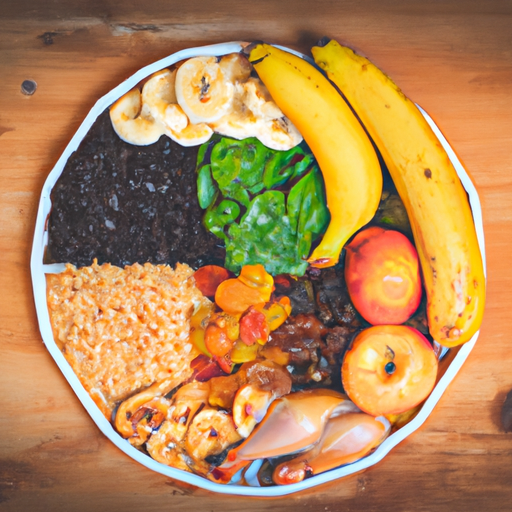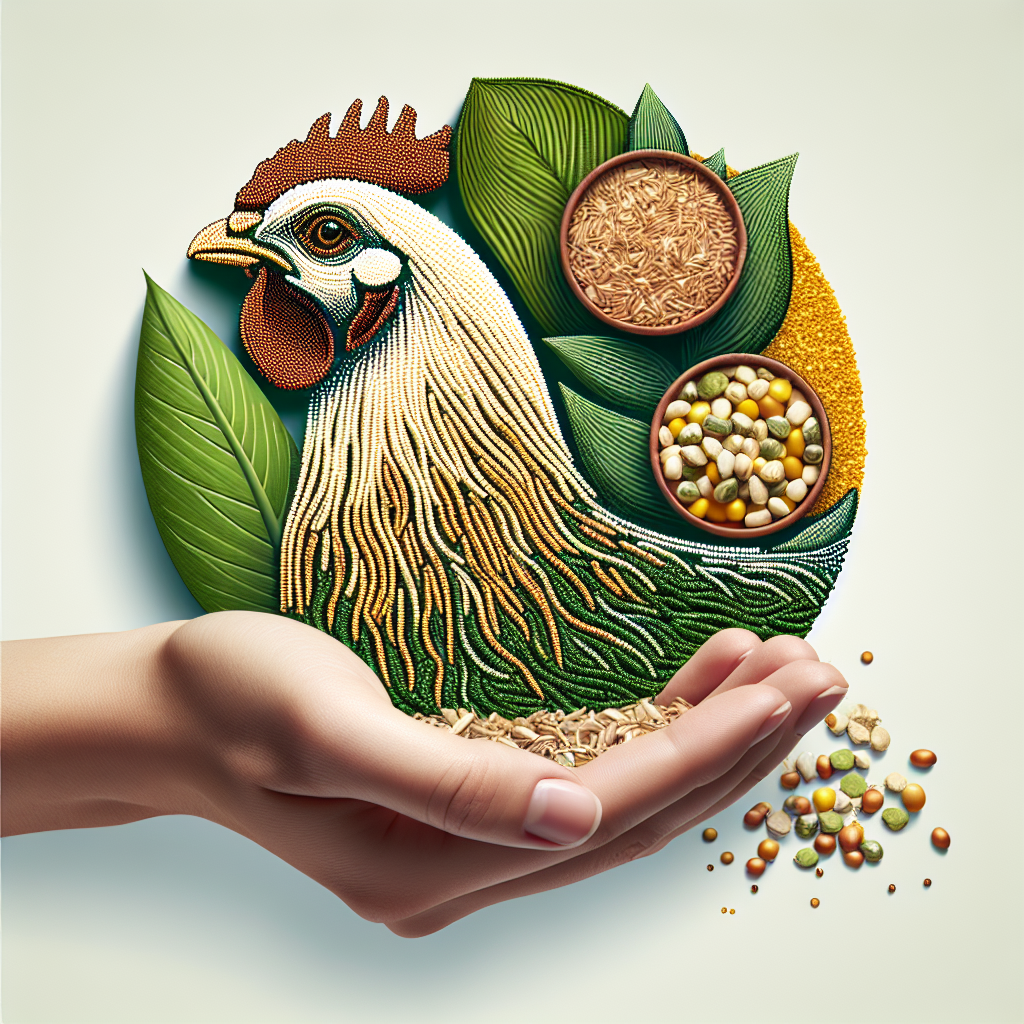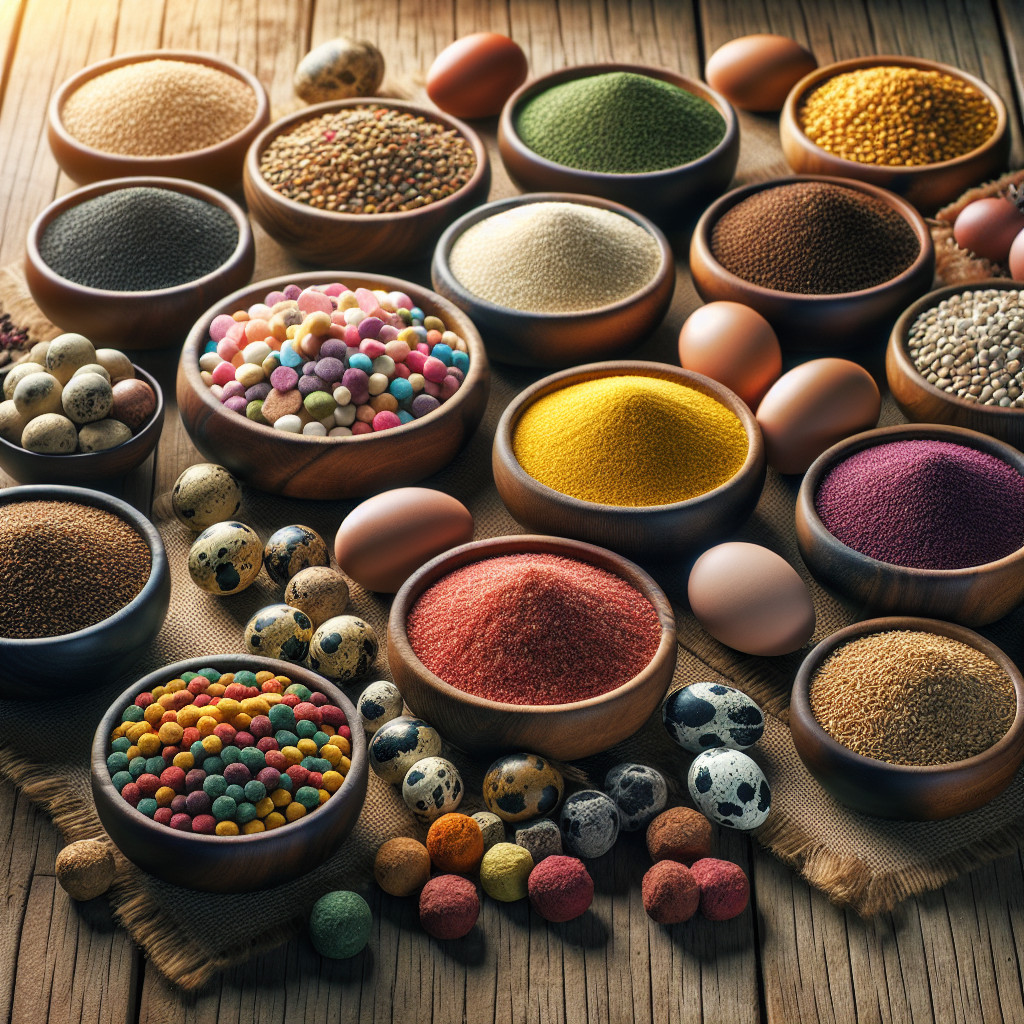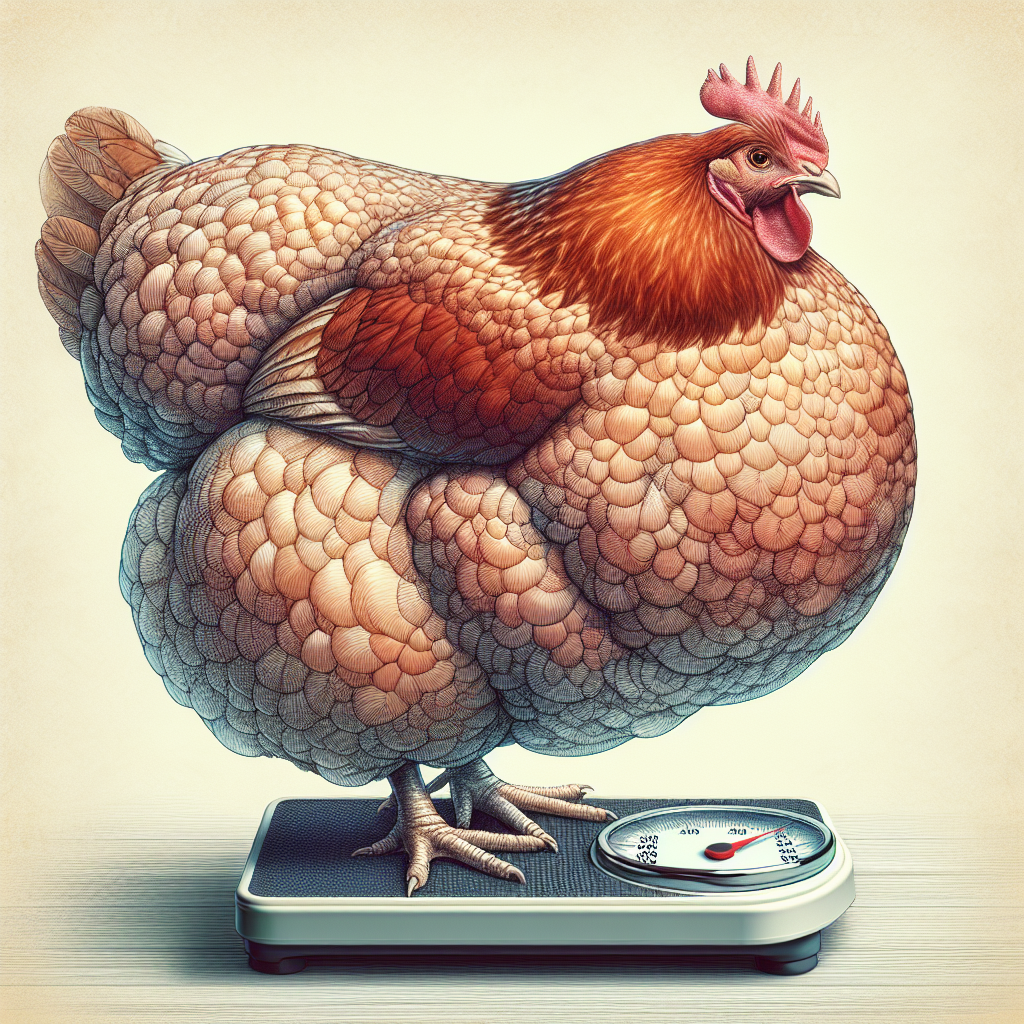Have you ever wondered what goes into creating a well-balanced and nutritious diet for chickens? From protein to vitamins, chickens need a variety of essential nutrients to stay healthy and thrive. In this article, we will explore the key nutrients necessary for chickens and how they contribute to their overall well-being. So, whether you’re a chicken enthusiast or just curious about what makes a chicken’s diet complete, keep reading to discover the essential nutrients required in a chicken’s daily diet.
Proteins
Proteins are an essential component of a chicken’s daily diet. They are composed of amino acids, which are the building blocks of protein. Amino acids play a crucial role in various biological processes, such as muscle development, enzyme production, and hormone regulation.
Amino Acids
There are two types of amino acids: essential and non-essential. Essential amino acids cannot be produced by the chicken’s body, so they must be obtained through their diet. On the other hand, non-essential amino acids can be synthesized by the chicken’s body. It is important to include both types of amino acids in a chicken’s diet to ensure proper growth and development.
Sources of Protein
There are several sources of protein that can be included in a chicken’s diet. Some common sources of protein include poultry meal, fish meal, soybean meal, and peas. These protein sources provide a balanced amino acid profile and are easily digestible by chickens. It is important to provide a variety of protein sources to ensure that the chicken receives all the essential amino acids it needs.
Fats
Fats are another essential nutrient that should be included in a chicken’s daily diet. They provide a concentrated source of energy and play a vital role in hormone production, insulation, and nutrient absorption. It is important to include both saturated and unsaturated fats in a chicken’s diet to ensure a healthy balance.
Omega-3 Fatty Acids
Omega-3 fatty acids are a specific type of unsaturated fat that is essential for a chicken’s overall health. They have been shown to reduce inflammation, improve heart health, and enhance immune function. Some sources of omega-3 fatty acids that can be included in a chicken’s diet include flaxseed, fish oil, and chia seeds.
Sources of Fat
There are various sources of fat that can be included in a chicken’s diet. Some common sources of fat include vegetable oil, animal fat, and fat-rich seeds. It is important to provide a balanced amount of fat in a chicken’s diet to ensure optimal health and growth.
Carbohydrates
Carbohydrates are an important source of energy in a chicken’s diet. They are broken down into glucose, which is then used by the body for various metabolic processes. There are two types of carbohydrates: complex and simple carbohydrates.
Complex Carbohydrates
Complex carbohydrates are made up of long chains of sugar molecules. They provide a steady and sustained release of energy, making them an ideal energy source for chickens. Some common sources of complex carbohydrates include whole grains, vegetables, and fruits.
Simple Carbohydrates
Simple carbohydrates, also known as sugars, are made up of one or two sugar molecules. They provide a quick burst of energy but are not as sustainable as complex carbohydrates. Some common sources of simple carbohydrates include table sugar, honey, and molasses. While simple carbohydrates can be included in a chicken’s diet, it is important to limit their intake to prevent weight gain and other health issues.
Vitamins
Vitamins are essential for a chicken’s overall health and well-being. They play a crucial role in various physiological processes, such as immune function, bone development, and cell growth. There are several vitamins that should be included in a chicken’s daily diet.
Vitamin A
Vitamin A is important for maintaining healthy vision, promoting proper growth, and supporting the immune system. Good sources of vitamin A include leafy greens, carrots, and liver.
Vitamin D
Vitamin D plays a crucial role in calcium absorption and bone health. Chickens can naturally produce vitamin D when exposed to sunlight, but additional supplementation may be necessary, particularly in indoor-reared chickens.
Vitamin E
Vitamin E is a powerful antioxidant that helps protect cells from damage. It also plays a role in immune function. Good sources of vitamin E include sunflower seeds, wheat germ, and green leafy vegetables.
Vitamin K
Vitamin K is essential for blood clotting and bone health. Green leafy vegetables, broccoli, and liver are good sources of vitamin K.
Vitamin B Complex
The vitamin B complex is a group of vitamins that play various roles in the body, including energy production, nerve function, and red blood cell production. Good sources of vitamin B include whole grains, poultry, and liver.
Vitamin C
Vitamin C is an important antioxidant that supports the immune system and aids in collagen formation. Fruits and vegetables, such as citrus fruits, berries, and bell peppers, are good sources of vitamin C.
Minerals
Minerals are essential for a chicken’s overall health and well-being. They play important roles in bone development, nerve function, and enzyme activity. There are several minerals that should be included in a chicken’s daily diet.
Calcium
Calcium is important for bone development and eggshell formation. It can be found in sources such as crushed oyster shells, limestone, and bone meal.
Phosphorus
Phosphorus works hand in hand with calcium in bone development and overall growth. Good sources of phosphorus include meat and bone meal, fish meal, and legumes.
Potassium
Potassium plays a role in nerve function and muscle contraction. It can be found in bananas, potatoes, and other fruits and vegetables.
Sodium
Sodium is essential for maintaining proper fluid balance and nerve function. It can be included in a chicken’s diet through the addition of salt.
Iron
Iron is important for the production of red blood cells and oxygen transport. Good sources of iron include liver, dark leafy greens, and legumes.
Zinc
Zinc is important for immune function and enzyme activity. It can be found in sources such as oysters, meat, and legumes.
Copper
Copper plays a role in the formation of connective tissues and the immune system. Liver, shellfish, and legumes are good sources of copper.
Magnesium
Magnesium is involved in numerous enzymatic reactions and plays a crucial role in overall health and well-being. It can be found in sources such as green leafy vegetables, nuts, and seeds.
Water
Water is an often overlooked but crucial component of a chicken’s diet. It is essential for proper digestion, nutrient absorption, and temperature regulation. Chickens should have access to clean, fresh water at all times to ensure optimal health and well-being.
Trace Elements
In addition to essential vitamins and minerals, there are several trace elements that are important for a chicken’s overall health and well-being. These trace elements are required in smaller amounts but are still crucial for proper physiological functions.
Iodine
Iodine is important for the production of thyroid hormones, which regulate metabolism and growth. Good sources of iodine include seafood and iodized salt.
Selenium
Selenium is an antioxidant that plays a role in immune function and reproductive health. It can be found in sources such as brazil nuts, seafood, and grains.
Manganese
Manganese is important for enzyme activity and bone development. Good sources of manganese include whole grains, leafy greens, and legumes.
Molybdenum
Molybdenum is involved in various enzymatic reactions in the body. Good sources of molybdenum include legumes, leafy greens, and organ meats.
Cobalt
Cobalt is a component of vitamin B12 and is important for red blood cell production. It can be found in sources such as liver, meat, and dairy products.
Amino Acids
Amino acids, as mentioned earlier, are the building blocks of proteins. They are essential for proper growth and development. There are two types of amino acids: essential and non-essential.
Essential Amino Acids
Essential amino acids cannot be produced by the chicken’s body and must be obtained through their diet. They include methionine, lysine, and threonine, among others. Good sources of essential amino acids include poultry meal, fish meal, and soybean meal.
Non-essential Amino Acids
Non-essential amino acids can be synthesized by the chicken’s body, reducing the dietary requirements for these amino acids. However, providing the adequate amounts of non-essential amino acids through their diet can still be beneficial for overall health and growth.
Probiotics
Probiotics are beneficial bacteria that promote a healthy gut environment. They are essential for proper digestion and nutrient absorption. Including probiotics in a chicken’s diet can help maintain a healthy gut microbiome, enhance immune function, and improve overall health.
Benefits of Probiotics
Probiotics have been shown to improve feed efficiency, prevent gastrointestinal diseases, and enhance immune function in chickens. They can help chickens maintain a healthy balance of gut bacteria, reducing the risk of harmful bacterial overgrowth.
Sources of Probiotics
Probiotics can be found in various forms, such as feed additives or natural sources. Some common sources of probiotics include yogurt, fermented foods, and commercially available probiotic supplements specifically formulated for poultry.
Feed Additives
Feed additives are substances added to a chicken’s diet to improve feed quality, enhance nutrient absorption, and promote overall health and well-being. There are several types of feed additives that can be beneficial for chickens.
Antioxidants
Antioxidants are substances that help neutralize harmful free radicals in the body. They can be beneficial for reducing oxidative stress and promoting overall health. Common antioxidants used as feed additives include vitamin E, selenium, and natural plant extracts.
Enzymes
Enzymes are proteins that facilitate various chemical reactions in the body. They can be added to a chicken’s diet to improve digestion and nutrient absorption. Common enzymes used as feed additives include amylase, protease, and lipase.
Acidifiers
Acidifiers are substances that lower the pH of the chicken’s digestive tract, creating an environment that is unfavorable for harmful bacteria. They can be beneficial for improving gut health and reducing the risk of gastrointestinal diseases. Common acidifiers used as feed additives include organic acids, such as citric acid and fumaric acid.
In conclusion, a chicken’s daily diet should include a variety of essential nutrients to ensure optimal health and well-being. Proteins, fats, carbohydrates, vitamins, minerals, water, trace elements, amino acids, probiotics, and feed additives should all be included in a balanced and nutritionally complete diet for chickens. By providing these essential nutrients, chicken owners can promote proper growth, reproductive health, and overall vitality in their flock.




